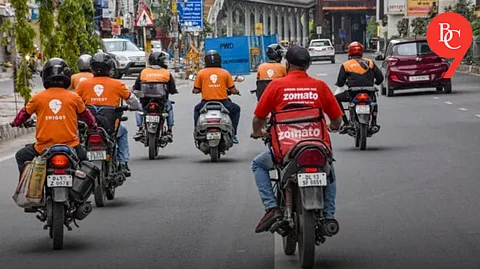

The quick commerce (q-commerce) sector, once hailed as the future of urban retail, is now facing its toughest operational challenge yet: a severe shortage of delivery riders. As 2025 unfolds, the very promise that made q-commerce a household staple ultra-fast delivery of everything from groceries to gadgets is under threat, with major players struggling to recruit and retain enough bikers to meet skyrocketing demand.
With e-commerce titans like Amazon entering the space and established names such as Swiggy, Zepto, and Blinkit expanding into new markets and services, the competition for delivery talent has reached a fever pitch. Yet, the pool of available riders is not growing fast enough to keep up.
“Hiring has definitely become harder because manpower availability is not rising in proportion to demand,” says Madhav Krishna, founder and CEO of recruitment platform Vahan, which works with leading gig economy firms across India. This sentiment is echoed across the industry, with executives admitting that the shortage is “reasonably acute though not unmanageable yet”
The shortage of riders is already causing disruptions. Delivery delays are becoming more common, and some platforms are being forced to prioritize high-value or high-frequency customers to manage limited capacity. Executives warn that unless the situation improves, the sector’s hallmark of 10- to 30-minute deliveries could become increasingly rare.
Moreover, the crunch is driving up costs. Companies are being forced to offer incentives, bonuses, and referral programs to attract new riders, while also investing in technology to optimize routes and reduce delivery times with fewer hands on deck.
While q-commerce’s rider crunch is particularly acute in India’s urban centers, it mirrors a global trend. Across logistics and delivery sectors, the combination of booming e-commerce, stricter driver requirements, and an aging workforce is creating persistent shortages. Companies worldwide are grappling with how to make delivery jobs more attractive and sustainable for the next generation.
The rider crunch is a wake-up call for the q-commerce industry. As demand continues to soar, companies must rethink their approach to workforce management and invest in making delivery jobs more rewarding and sustainable. The stakes are high: the future of instant delivery and the satisfaction of millions of urban consumers; hangs in the balance.
